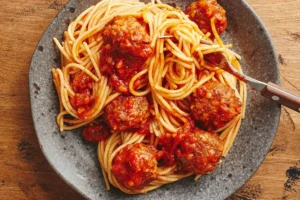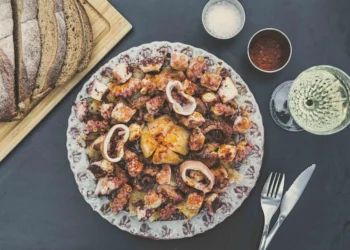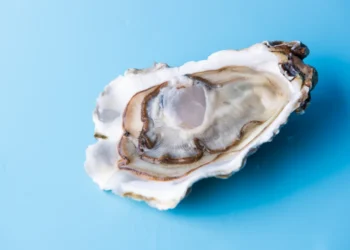
Ask any Nonna you know for her secret to tender meatballs, and it’s likely a panade. I would go as far as to say that this is the most important ingredient when it comes to improving the texture of meatballs. Let’s dive into what a panade is and how you can use it to make the most spoon-tender meatballs.
What Is a Panade?
Panade is a French word that translates to “bread mash,” which is an apt description of what it is: a mushy mixture of bread soaked in a liquid, usually milk. In the case of meatballs, it involves nothing more than soaking bread in a liquid for about five minutes, or until the liquid has been absorbed. Then add the panade to your meatball mixture.
What originally came to be as a means for Italian American cooks to stretch expensive meat a little further by combining it with soaked stale bread, turns out to be crucial for the texture of meatballs.

If you’ve ever cooked a burger or steak, you’ve probably noticed that when the meat hits the hot pan, it begins to shrink instantly. This happens regardless of how the meat is cooked—grilled, boiled, baked, etc. The reason is that when the muscle fibers are exposed to heat, they tighten up, and eventually start to ring out moisture, causing the piece of meat to shrink.
When you add panade to ground meat, it physically gets in the way of the protein in the meat from binding together and tightening up. Unlike meat protein, the starches in bread absorb liquids, swell, and stay moist as they cook—just like when you cook pasta and rice. So the panade absorbs and retains moisture as the meatballs cook. The result is melt-in-your-mouth tender meatballs.

How To Add Panade to Your Meatball Recipe
When I’m making meatballs, I add bread to a mixing bowl, pour in just enough milk to saturate it, mash the mixture with a potato masher, and let it sit while I gather the remaining ingredients for the meatballs. The five minutes it takes to do this pays off big time!
A good starting point for one pound of ground meat is 3/4 cup of loosely packed fresh breadcrumbs and 1/4 cup of milk. If the breadcrumbs look dry, add more milk, 1 tablespoon at a time, until all of the bread is moistened. It does not matter if I’m using beef, veal, pork, or a combination—I still use this loose recipe for panade.
While milk is the classic soaking liquid, any liquid will do. I’ve used stock, wine, ricotta, and even a little marinara to add extra flavor to my meatballs. And when it comes to breadcrumbs, fresh is what I typically use, but you can use dried breadcrumbs. It’s also traditional to break good-quality white sandwich bread into small pieces. You may need to add a little more or less liquid to get it fully soaked.
The key is to make sure that whatever liquid you use is fully absorbed by the breadcrumbs before you add the panade to the meatball mixture. If any liquid isn’t absorbed after about five minutes, simply drain it off before using. A panade is an insurance policy for your meatballs; it does not necessarily impact the flavor, but it is absolutely crucial for the texture.
Read the original article on Simply Recipes.















































